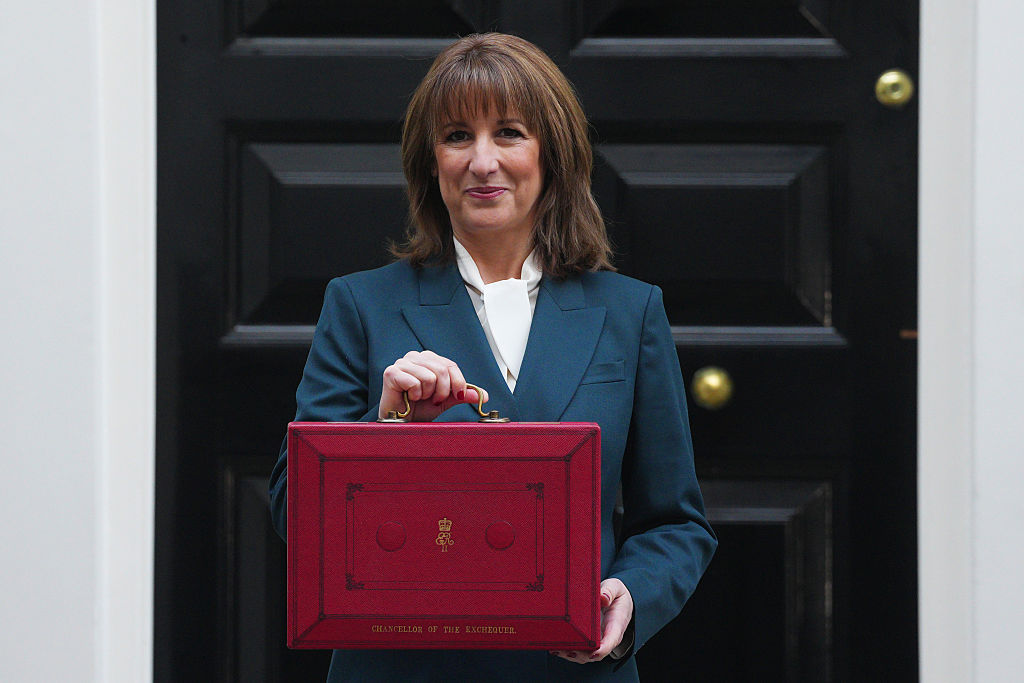‘All political careers end in failure,’ said Enoch Powell. Maybe. But just occasionally our imperfect political system throws up someone whose impact on our way of life, for good or ill, outlives them. In a series of elegant essays, Vernon Bogdanor, professor of government at King’s College London, examines the careers of six politicians – three from left of centre, three from the right – who, in his view, changed the political weather of modern Britain. Only one, Nigel Farage, is still alive.
First up is Aneurin Bevan, the left-wing firebrand who, in the teeth of fierce opposition from the mighty, vested-interested British Medical Association, presided over the creation of the National Health Service. Although now fraying at the edges, the NHS remains the one part of the post-war settlement that has survived into the 21st century. Not even Margaret Thatcher dared mess with it.
This is not a book about heroes, but about those who were unafraid to stick their heads above the parapet
The achievement was all the more remarkable given Bevan’s inauspicious origins. One of ten children of a south Wales miner, he had a pronounced stutter and left school at 13. He worked as a miner during his teens, but had been unemployed for three years before he eventually found his way into parliament – only to be temporarily expelled from the Labour party in 1939 for advocating a popular front with the communists.
Most of his long career in politics was spent in opposition, both to the Tories and to the leadership of his own party. It says much for Clement Attlee’s tolerance and eye for talent that in 1945 he plucked Bevan from the backbenches and gave him one of the most important portfolios. It is sometimes overlooked that Bevan was also minister for housing, on whose watch 800,000 new homes were built at a time when raw materials were in short supply.
Bogdanor credits Enoch Powell with being one of the first politicians to begin the erosion of the traditional class divide in British politics, with his controversial speeches on immigration and parliamentary sovereignty – a process which peaked with Brexit. Bogdanor concedes that Powell was an obsessive, divisive figure, but acquits him of being racist and concludes that his principal legacy was a belief in the sovereignty of parliament and in the free market. ‘He lacked, however, the first quality of a constructive politician: the ability to win the support of colleagues.’
On many counts, Roy Jenkins was the most successful politician of the post-war era. As home secretary, he presided over a series of social reforms on abortion, the legalisation of homosexuality and the outlawing of discrimination on grounds of race or sex, all of which have stood the test of time. He was also a lifelong advocate of British membership of the EU, which – depending on your point of view – was either a triumph or a tragedy. Even his biggest setback, the failure of his Social Democratic party to break the mould of British politics, produced what was arguably one of his most enduring successes – the rise of New Labour. In office, Tony Blair repeatedly acknowledged his debt to Jenkins.
Sir Keith Joseph owes his place in Bogdanor’s pantheon not to any legislative achievements but as the man who, in a series of speeches in the early 1970s about reducing the role of the state and liberalising markets, paved the way for Thatcher – a debt she readily acknowledged. Seen by some as a potential Tory leader, he lacked many of the requisite skills. Bogdanor writes: ‘Conservatives could hardly elect a leader whose every speech needed to be qualified by amendments or repudiated by apology.’ In addition to this he was quite unable to cope with the virulent criticism that some of his speeches aroused. In many ways, however, he was the most prescient of his contemporaries.
Although a minister for 11 years, Tony Benn – like Powell and Joseph – owes his place in this select gathering not to any particular legislative achievements, but to his challenge to the age of deference:
Benn’s central insight was his perception that the world of deference and respect for authority was passing away. He was one of the first to perceive a trend of the future whereby authority needed to become more accountable to those upon whose support it depended.
And so we come to Farage, perhaps the most influential of these men. Like him or loathe him, says Bogdanor, he has been ‘in large part responsible for the most consequential foreign policy decision Britain has taken since the war’.
This is not a book about heroes. The author has painted warts-and-all portraits of some of the most significant politicians of our age. Their careers are full of failures, misjudgments and changes of mind; and sometimes their achievements produced the very opposite of the result they’d hoped for. But they were unafraid to stick their heads above the parapet on controversial issues, and in so doing they made the weather.







Comments